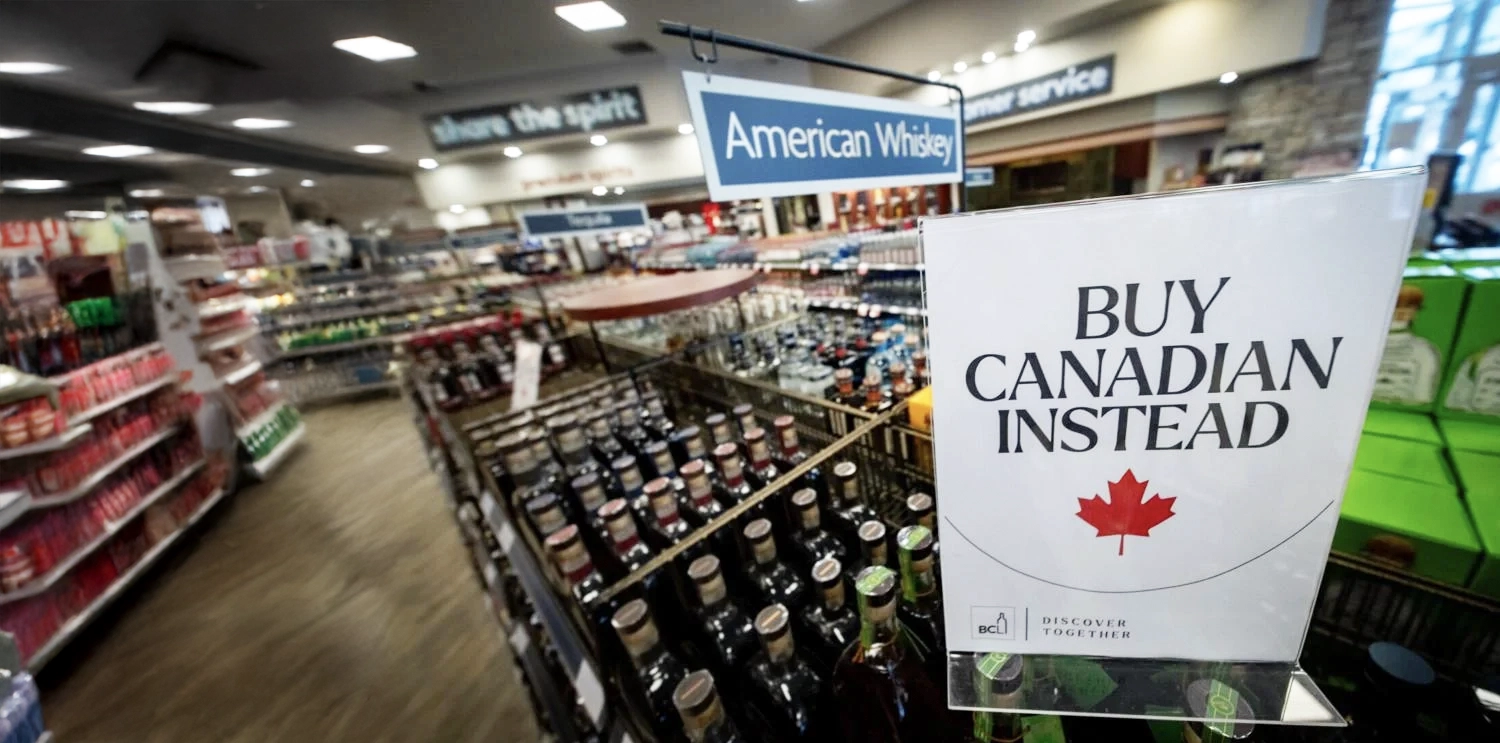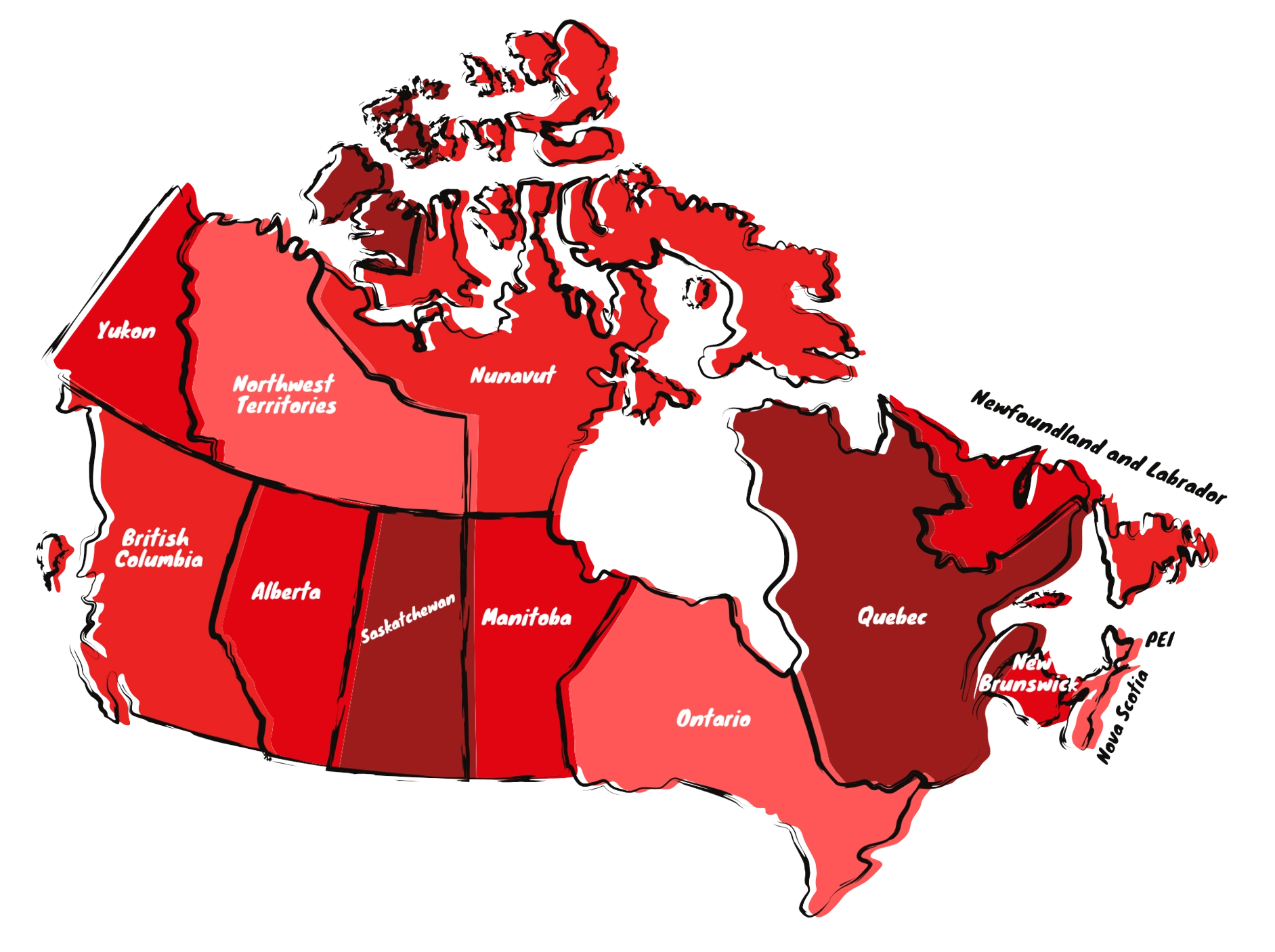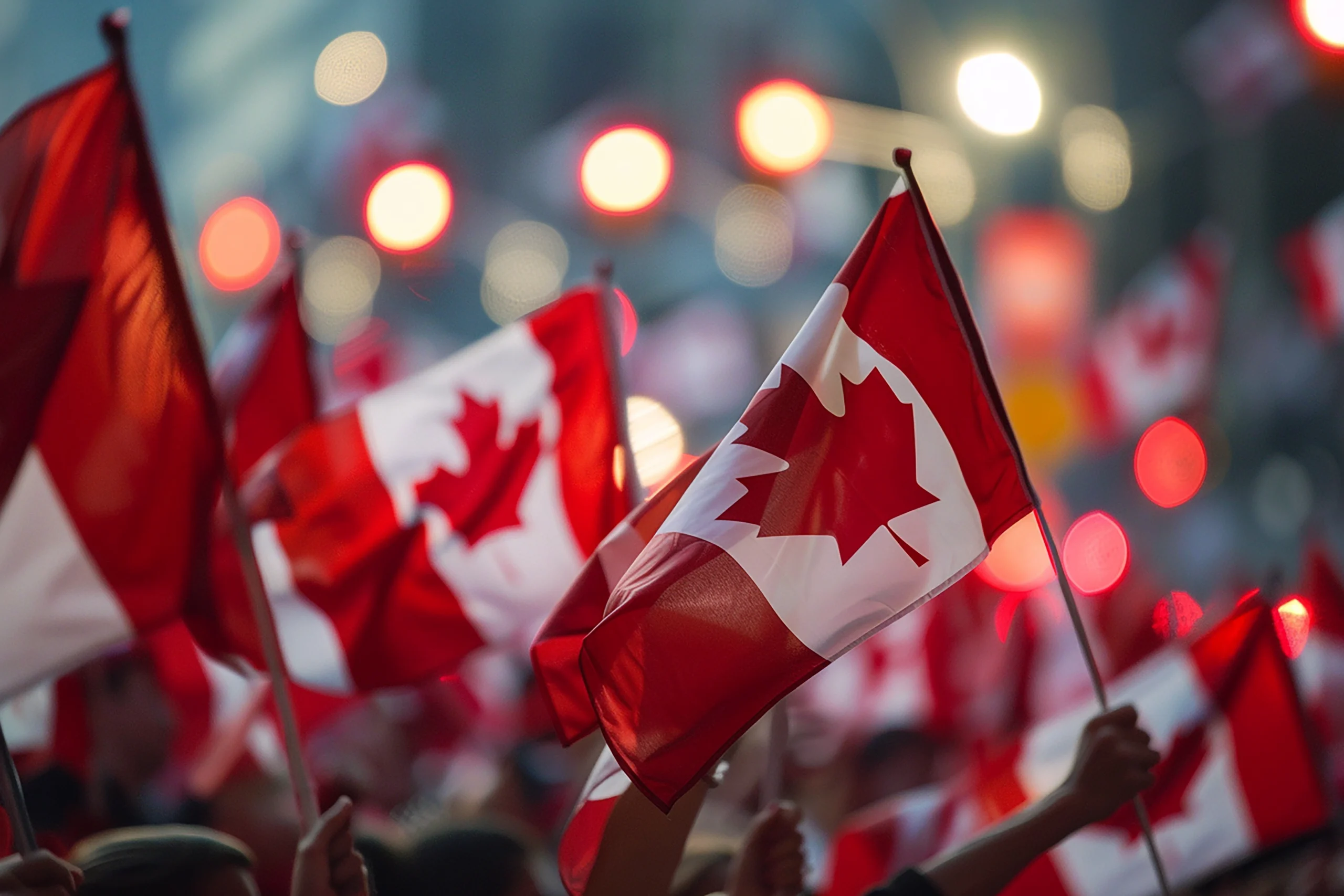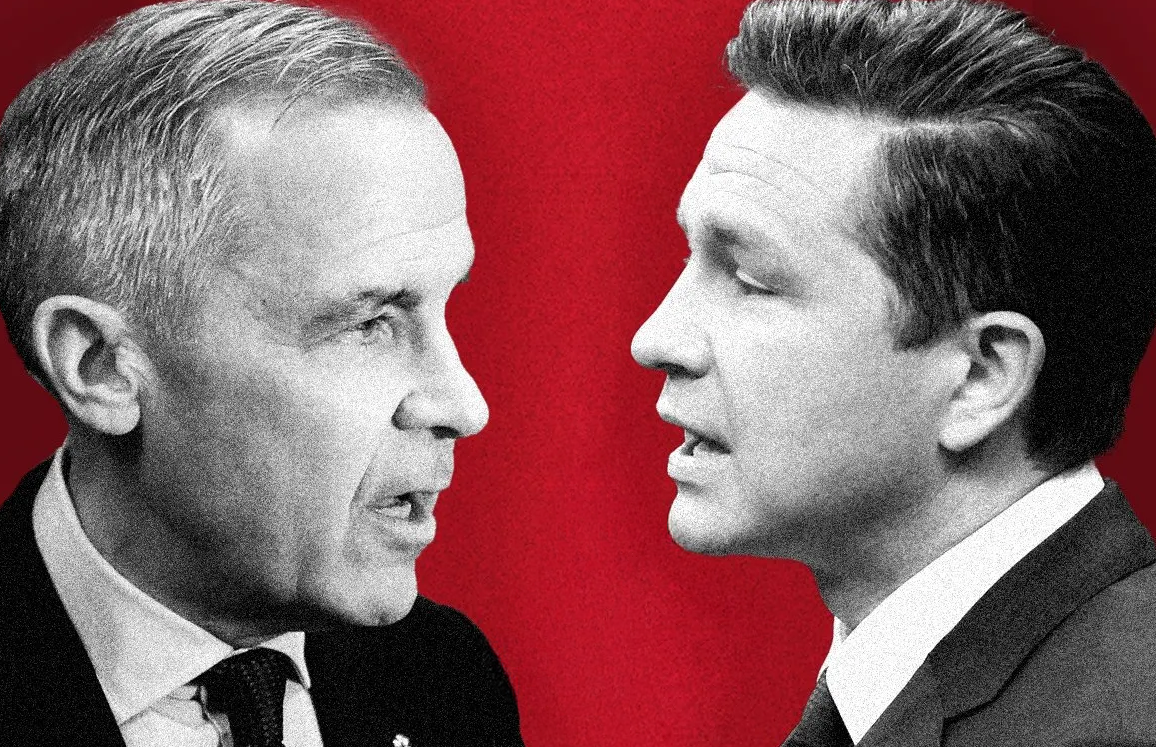Trade disputes between the United States and Canada have never been just about economics —they influence how people see their country, and even their everyday shopping habits. As tariffs and trade tensions flare up, Canada’s pride follows, and Canadians are reading to fight back. Many are now rethinking where they shop, what they buy, and how they feel about doing business with the U.S.
Recent polling from our sister organization, the Angus Reid Institute suggests that many Canadians are responding to trade disputes by adjusting the way they spend their money, like choosing Made in Canada products over American alternatives. But we are all wondering if this new form of economic nationalism is a temporary reaction, or a lasting change in consumer loyalty?
What Is Economic Nationalism?
Economic nationalism is the idea that a country should prioritize its own industries, businesses, and workforce over products coming from the rest of the world. Here in Canada, this often looks like:
• Supporting Canadian-made products over imports.
• Choosing local brands and businesses to strengthen the national economy.
• Boycotting foreign goods, especially in response to political or trade disputes.
Canadians have always backed free trade, but recent U.S. trade policies—like tariffs on steel and aluminum—have sparked a push to rely on more homegrown products and industries.
How Trade Disputes Spark National Pride
The U.S. tariffs on Canadian aluminum and steel didn’t just trigger a political response—everyday Canadians noticed, too. According to recent polling from our friends at the Angus Reid Institute reveals that:
• 73% of Canadians now hold an unfavorable view of the U.S., a sharp rise since the trade disputes began.
• 70% support retaliatory tariffs on key U.S. goods as a response.
• 35% say they are actively avoiding American products when possible.
This data suggests that for many Canadians, where they spend their money is more than just a choice—it’s a way to stand up to U.S. trade policies.
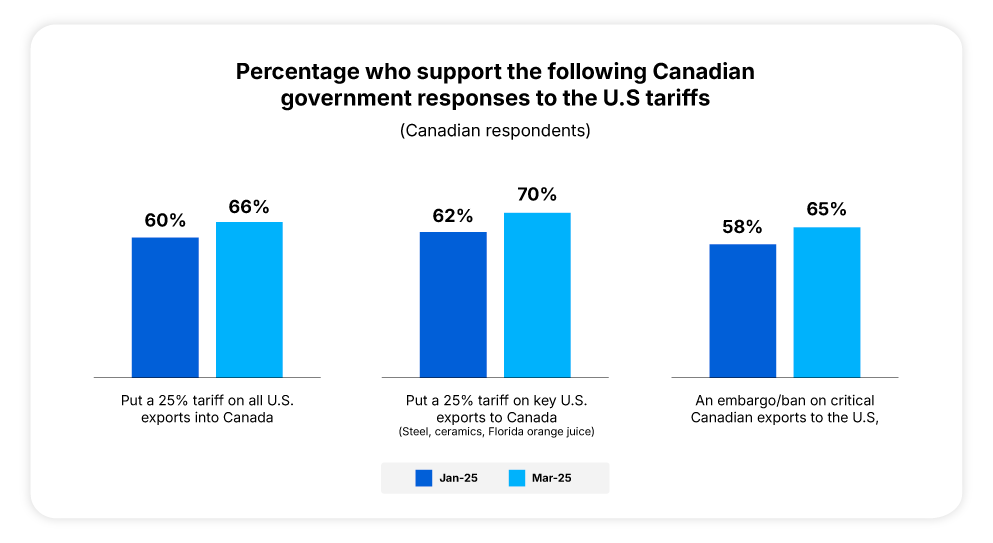
How Consumer Behavior Is Changing
Economic nationalism isn’t just about sentiment—it’s about real changes in consumer behavior. In response to trade tensions polls from the Angus Reid Institute revealed:
• 78% of Canadians say they are deliberately buying more Canadian-made goods.
• 48% have reconsidered travel to the U.S., with some canceling plans.
• 66% support a blanket 25% tariff on U.S. goods, even if it raises costs at home.
This suggests that economic nationalism isn’t just talk—people are acting on it with their wallets.
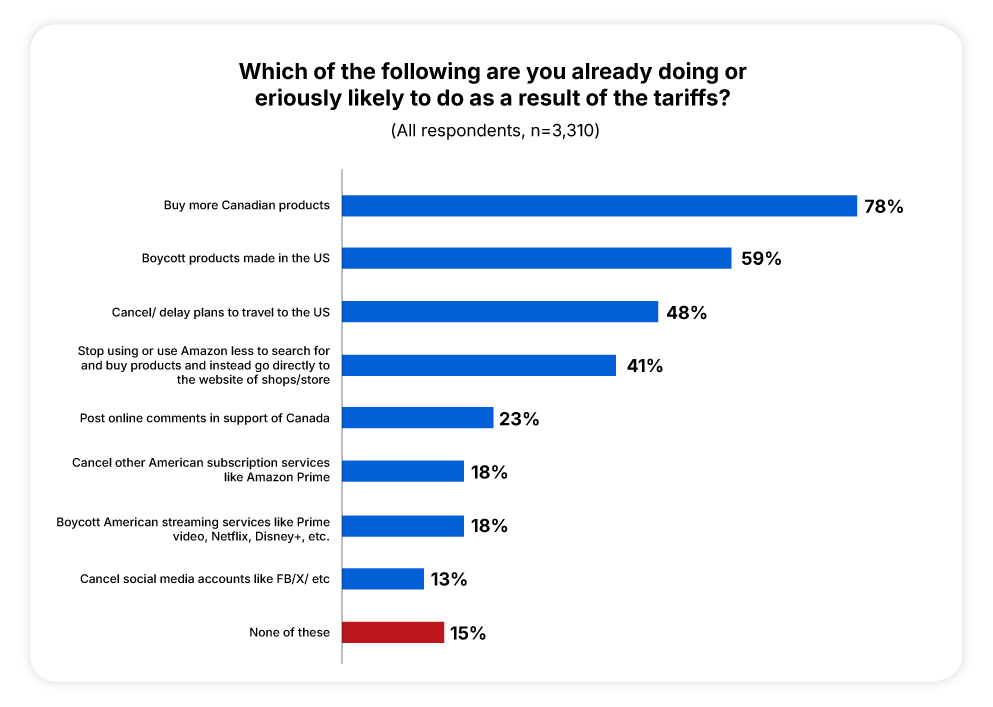
The Future of the “Buy Canadian” Movement
While trade disputes often spark short-term shifts in consumer behavior, the question is whether this wave of economic nationalism will last. Our opinion is:
• If consumer loyalty stays strong, Canadian businesses can benefit long-term.
• Ongoing trade dispute could reshape supply chains, making Canada less dependent on U.S. goods.
• Future political changes in the U.S. could ease tensions, bringing back more cross-border trade.
For now, many Canadians are standing firm, showing that trade isn’t just about money—it’s about identity and the choices people make every day.
The Takeaway
Trade disputes between the U.S. and Canada have fueled a surge in economic nationalism and changing views of the U.S., with many Canadians actively choosing to support local products, businesses, and industries. While it’s uncertain how long this trend will last, one thing is clear—when trade policies shift, consumer behavior shifts with it.
Want more insights on how Canadians are reacting to trade disputes?
Check out the latest research from the Angus Reid Institute: Read More.
Recommended
Trade Pressure, Voter Priorities, and the Power of Perception
Takeaways from our April 3 Countdown to Canada Webinar In our most recent Countdown to Canada webinar, we focused on two major themes: the political implications of Trump’s latest trade move—and what it means (and doesn’t mean) for Canada—and the rising importance of...
Measuring Canadian Pride: What It Means, How It’s Tracked, and Why It Matters
National pride is an essential part of any country’s identity, influencing everything from politics and culture to international relations. But what exactly does it mean to be proud of one’s country? And more importantly, how do we measure it? Recent data from the...
Trade Pressure, Voter Priorities, and the Power of Perception
Takeaways from our April 3 Countdown to Canada Webinar In our most recent Countdown to Canada webinar, we focused on two major themes: the political implications of Trump’s latest trade move – and what it means (and doesn’t mean) for Canada – and the...
Countdown to Canada: Week 2 Wrap up.
What the “Crisis Election” Reveals About Canada Right Now Last week, I hosted week 2 of our weekly webinar series; Countdown to Canada — a 20-minute live webinar where we unpack what’s really going on in this year’s Canadian federal election. What came out of the...






